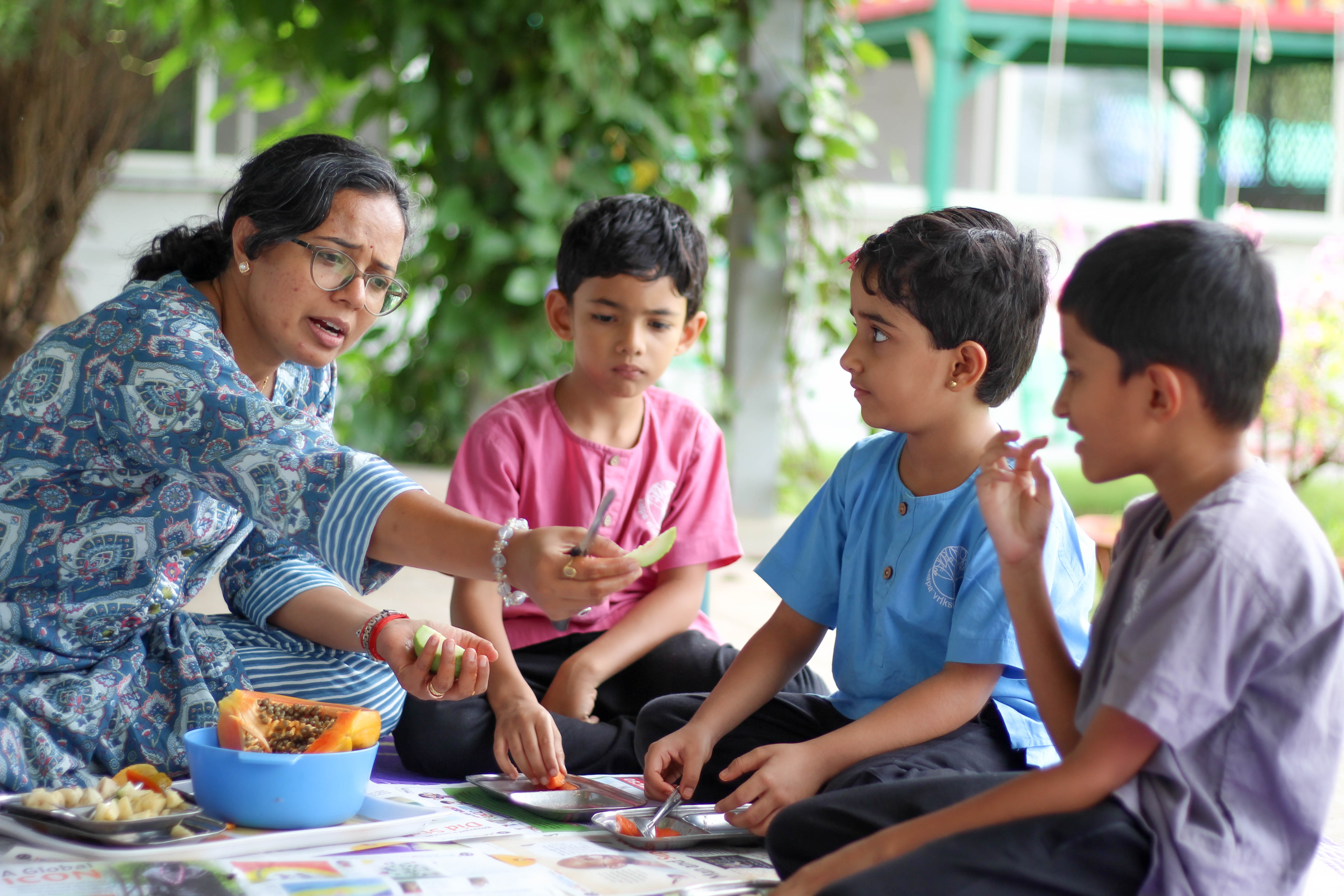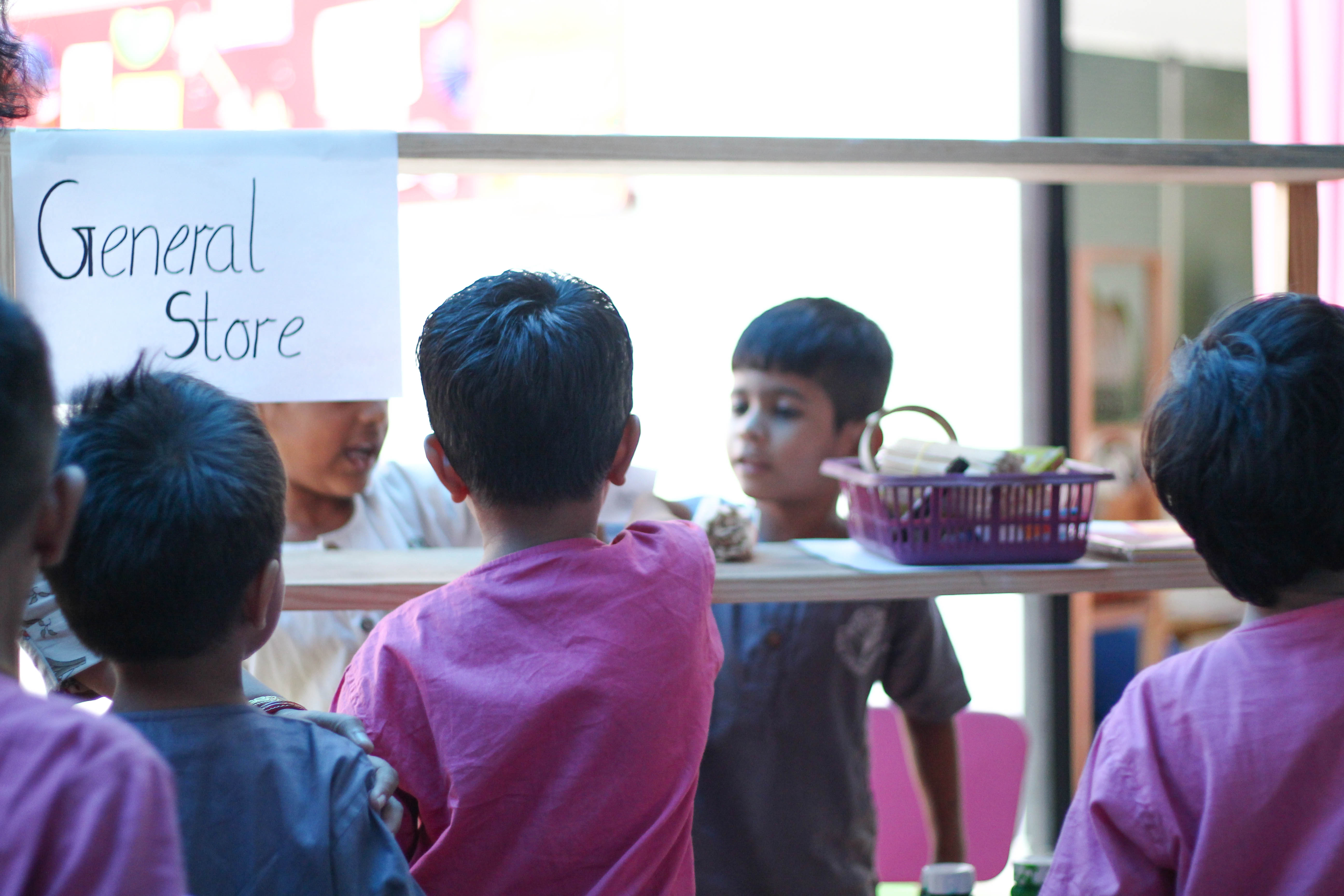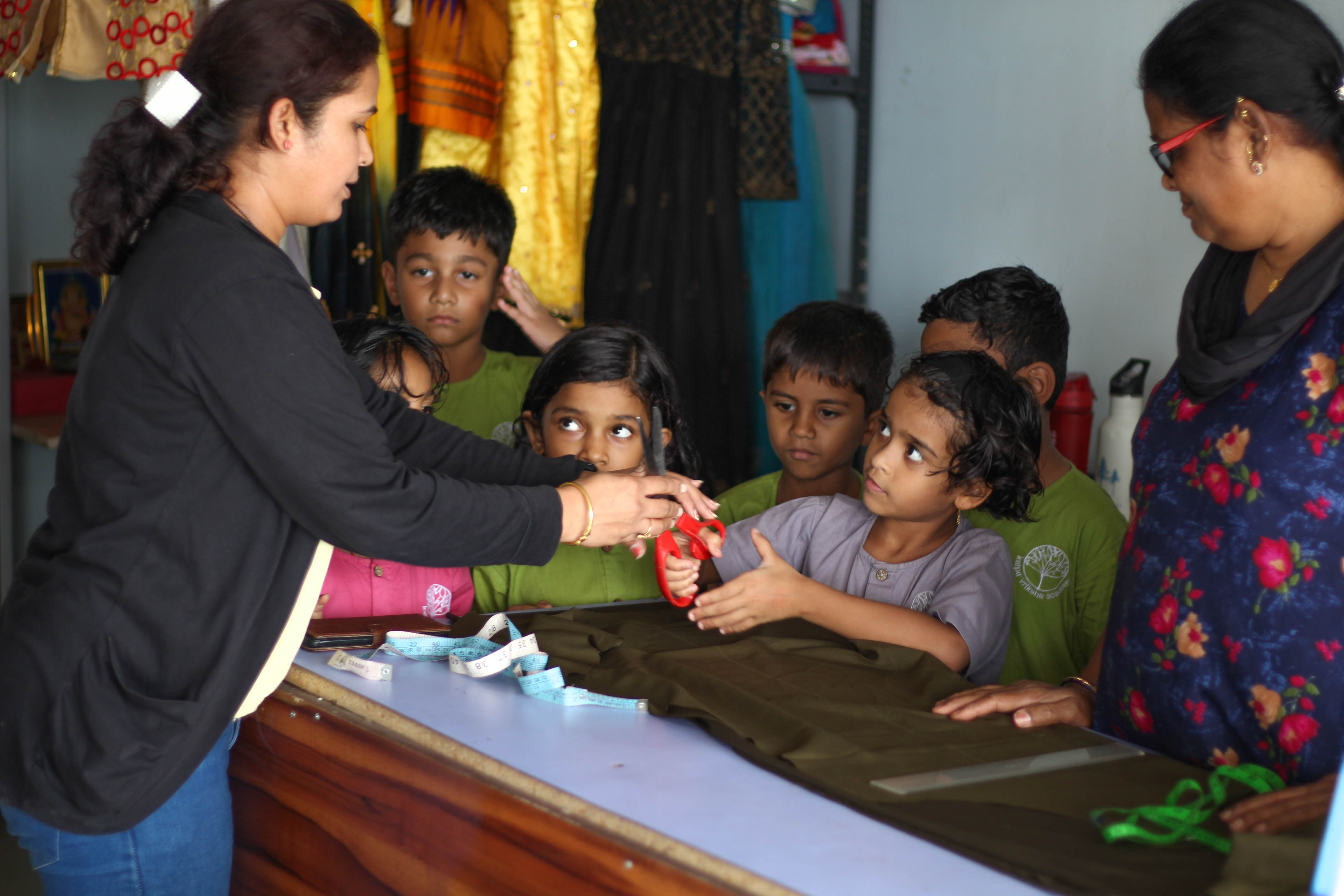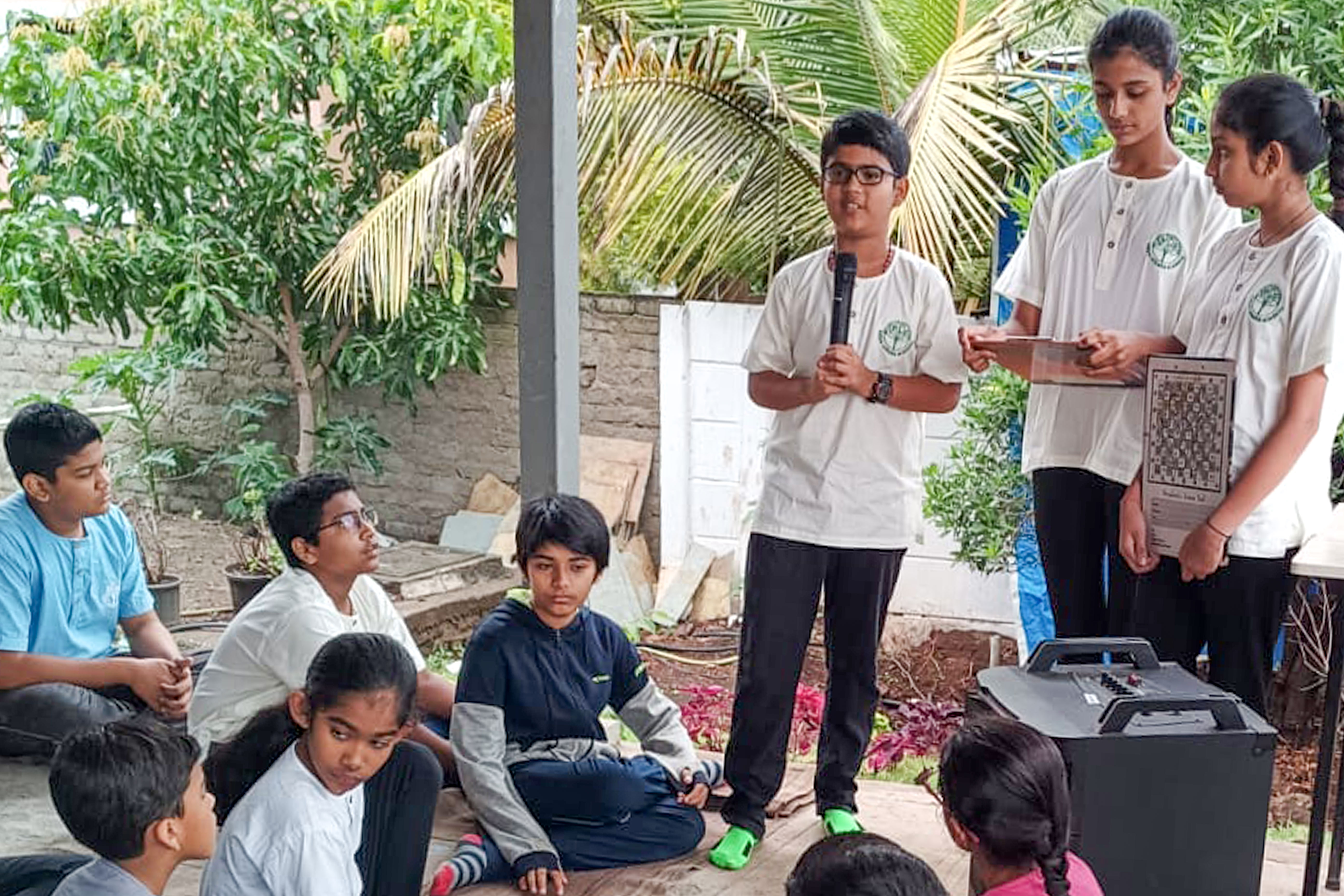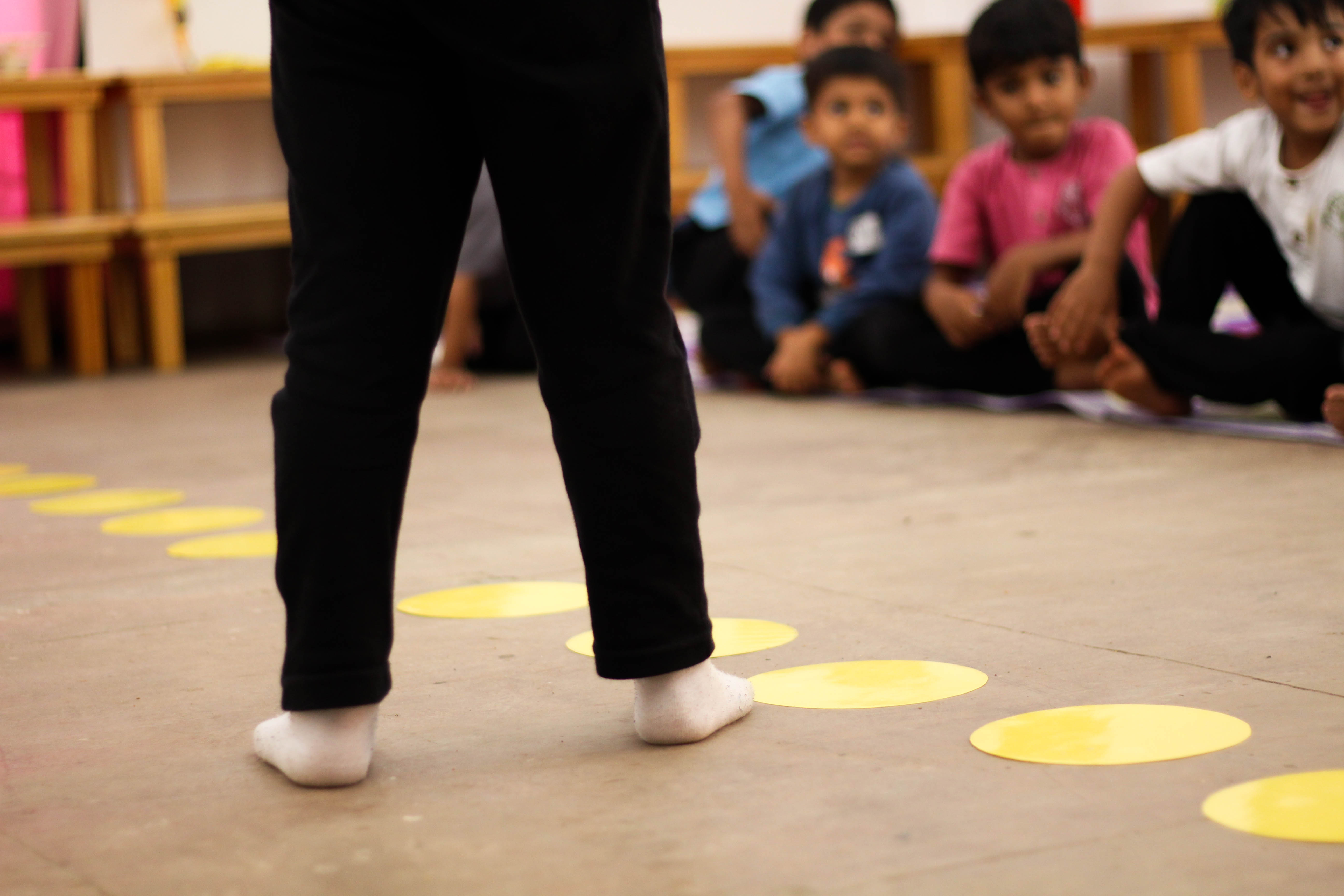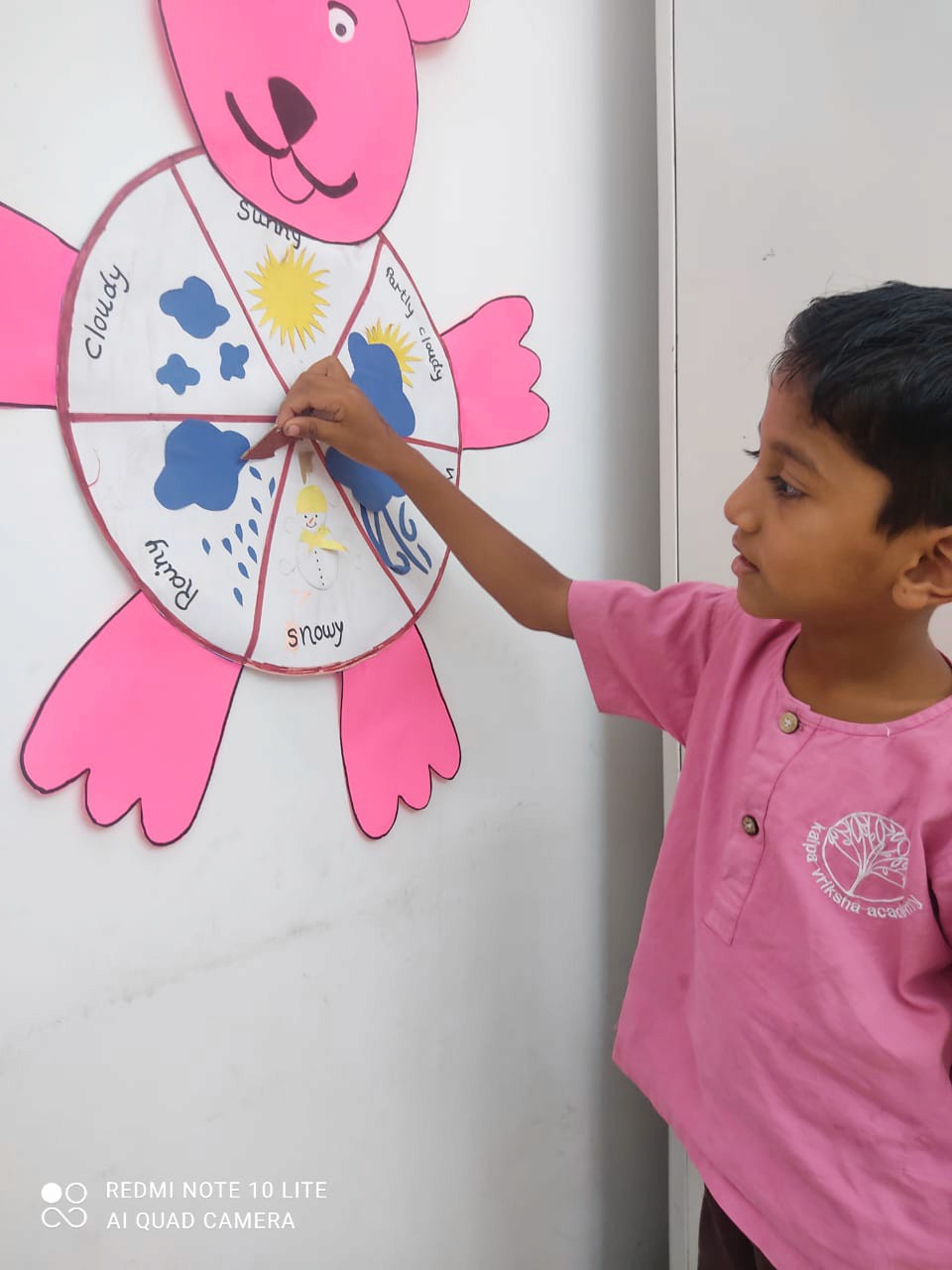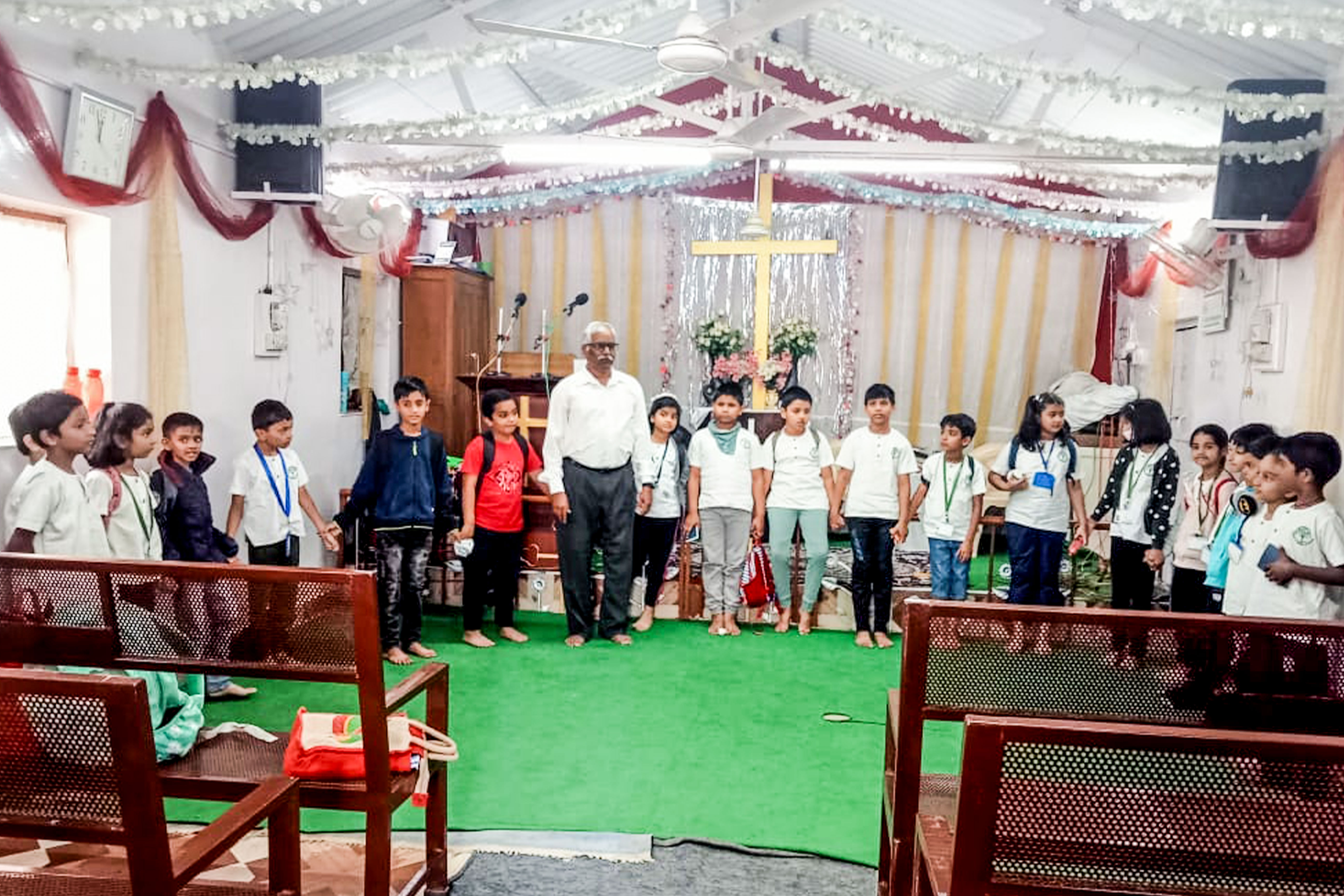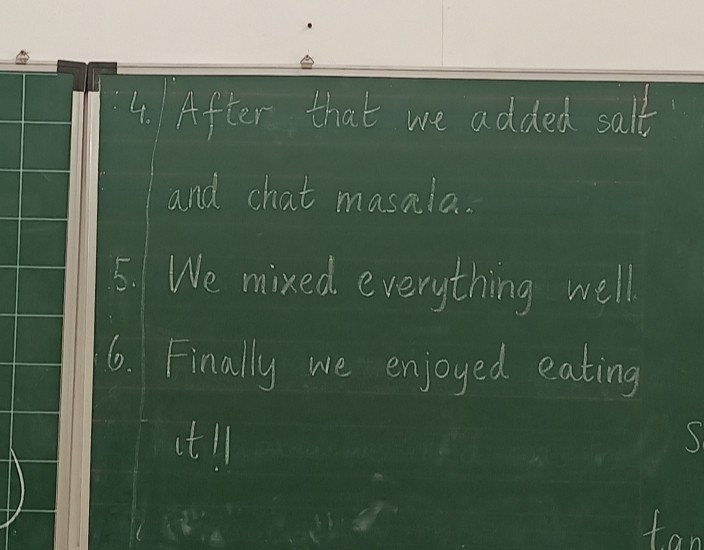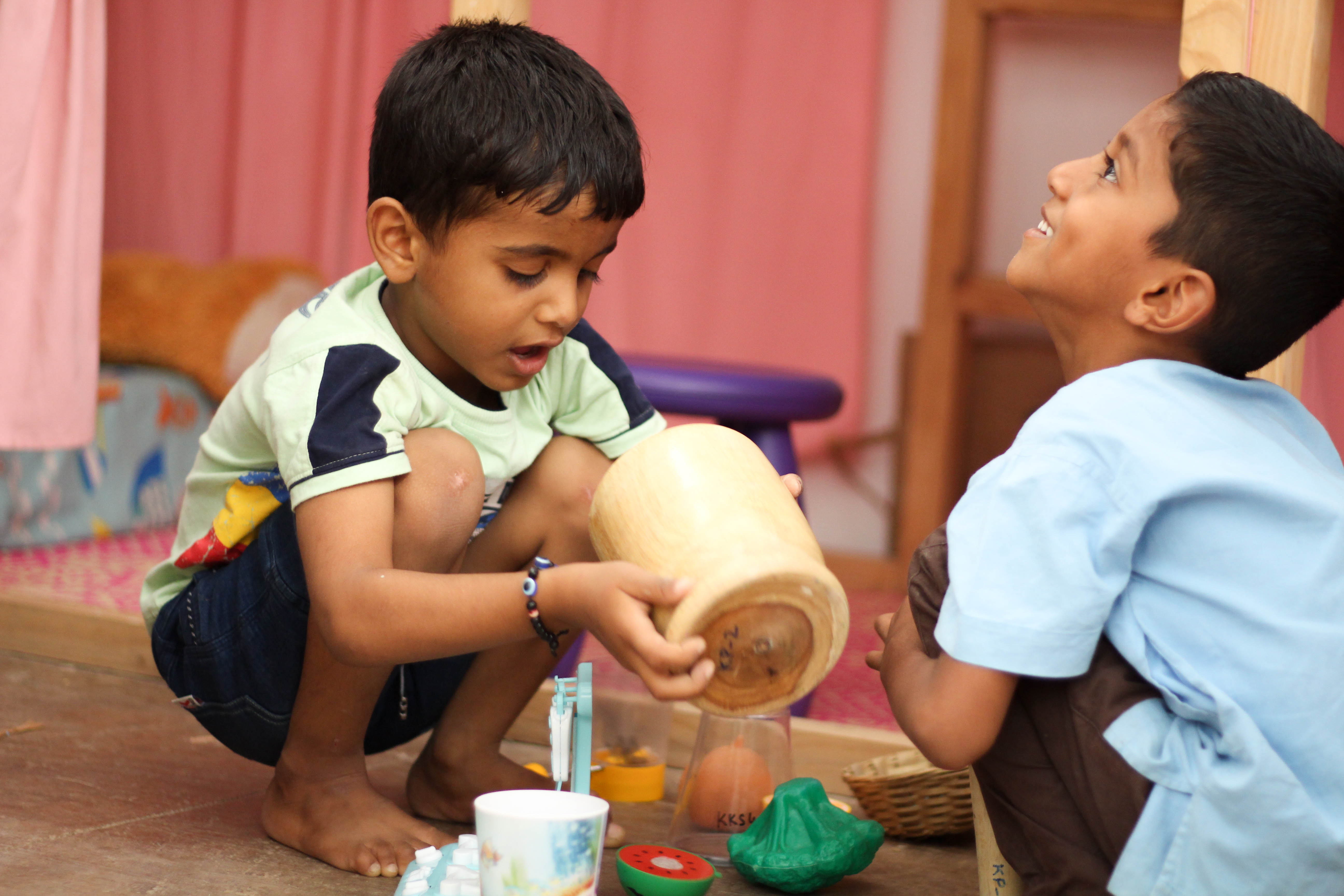Our curriculum and teaching practices are already fully in alignment with the NEP manual and guide as well as the NCF. Here are some examples:
1. RASOEE TIME
Children are involved in the process of growing vegetables in their allotted pieces of farmland. Once the vegetables are ready, they participate in a cooking activity called ‘Rasoee Time’, facilitated by their teacher. During ‘Rasoee Time’ the children are not only encouraged to use proper language, syntax and vocabulary, but are also taught concepts related to maths and science. Through this process of community cooking, the children also learn to value teamwork.
NCF for foundational years
Domain 2.4.1 Physical Development: C2.1, C2.4, C2.5, C2.6
Domain 2.4.1 Physical Development: C2.1, C2.4, C2.5, C2.6
2. MARKET DAY
In this learning experience, children gather a first hand knowledge of the economic market through an exercise in buying and selling. The children visit a local supermarket with their teachers, role-play being buyers and sellers, create false currency, and then to culminate, set a market of their own in school to buy and sell goods. Through this experience, mathematics concepts like addition, subtraction and measurements are taught and reinforced. Additionally children also learn to clearly communicate, using correct language and syntax, when articulating products they wish to purchase.
NCF for foundational years
Domain 2.4.3 Cognitive Development: CG8.11
Domain 2.4.3 Cognitive Development: CG8.11
3. FIELD TRIPS
Field Trips are an essential teaching method that we use with all students from Nursery to Grade 10. The students of the class in question, are often invited to participate in the planning and organisation of the Field Trip at least a few days in advance. The children may divide responsibilities between themselves to plan the trip’s itinerary, map the route, come up with a list of questions to ask persons they are planning to meet on the trip etc. After the Field Trip, students are also given the opportunity to reflect and review everything they have learnt and put it into a small report.
NCF for foundational years
Module 2.4.5.1 Positive Learning Habits: CG 13
4. SCHOOL ASSEMBLY
Secularity is deeply embedded in our school philosophy and curriculum. We sing prayers from not just one or two, but six different religions when we meet for School Assemblies. The School Assembly is treated as a space for expression and collective learning, where students from different classes, starting with Grade 1, have the opportunity to present thoughts, performances and learnings. Students may often also use this space to practise their public speaking or game hosting skills, by conducting quizzes on national or international current affairs.
NCF for foundational years
Domain 2.4.2 Social-Emotional and Ethical Development: CG4
6. FLOOR CIRCLE
Our Preschool Maths Programme is designed to cater to the needs of all kinds of different types of learners
- auditory, visual and kinaesthetic. The Floor Circle is one such method, where a row of coloured circles are laid on the floor, equally calibrated to represent numbers from one to twenty. The circles are such that the students can walk or draw lines of chalk between them when practising basic arithmatic.
- auditory, visual and kinaesthetic. The Floor Circle is one such method, where a row of coloured circles are laid on the floor, equally calibrated to represent numbers from one to twenty. The circles are such that the students can walk or draw lines of chalk between them when practising basic arithmatic.
NCF for foundational years
Domain 2.4.1 Physical Development: CG2, CG3.2
Domain 2.4.1 Physical Development: CG2, CG3.2
8. PLACES OF WORSHIP
This topic features in our Grade 2 ‘Explorations In The Environment’ Curriculum. The children are taken on a series of field trips to visit local places of worship of a variety of different religions. The teacher may also arrange for the students to meet with a priest at each place of worship so that the students can ask them questions about their religious practices and beliefs. In doing so, children glean real manifestations of the abstract concept of religion and have an opportunity to reflect upon similarities and differences between different religions.
NCF for foundational years
Domain 2.4.2 Social-Emotional and Ethical Development: CG6
10. MORNING ROUTINE
After breakfast in school, every morning, our preschool students are given 30 minutes to engage with any or as many different workstations that have been set out for them in their class. Usually, the teacher sets out at least 12 different work stations, each with a different kind of activity ranging from puzzles, water play, meditation, art and casual socialisation. In making choices about what they wish to do, children feel a sense of autonomy and also learn how to negotiate with other children in the use of the equipment laid out for them. In this time, the teacher’s role is minimal and she/he only intervenes if needed.
NCF for foundational years
Domain 2.4.1 Physical Development: CG2, CG3
© Kalpa Vriksha Academy, 2023
Designed by Radha RH
Kalpa Vriksha Academy is founded and managed by The Harmony Educational Foundation which is registered under Section 8 Companies Act, and also having a 12A and 80 G certification. Donations are welcome as is volunteering with us! Harmony has a number of projects under its umbrella.
